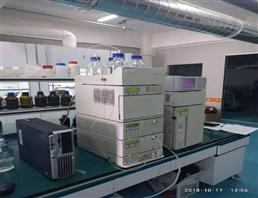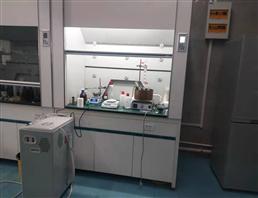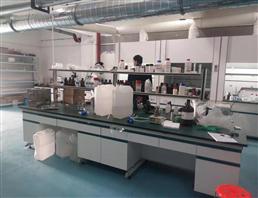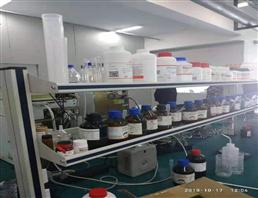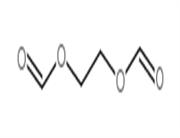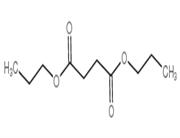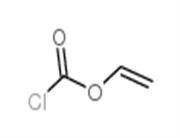Product Name: LY2835219
Synonyms: Bamaciclib Mesylate;Abemaciclib mesylate(LY2835219 mesylate);2-Pyrimidinamine, N-[5-[(4-ethyl-1-piperazinyl)methyl]-2-pyridinyl]-5-fluoro-4-[4-fluoro-2-methyl-1-(1-methylethyl)-1H-benzimidazol-6-yl]-, methanesulfonate (1:1);N-[5-[(4-Ethyl-1-piperazinyl)methyl]-2-pyridinyl]-5-fluoro-4-[4-fluoro-2-methyl-1-(1-methylethyl)-1H-benzimidazol-6-yl]-2-pyrimidinamine methanesulfonate (1:1) LY2835219;LY2835219 mesylate;Bemaciclib(salt);Bemaciclib;N-[5-[(4-ethylpiperazin-1-yl)methyl]pyridin-2-yl]-5-fluoro-4-(7-fluoro-2-methyl-3-propan-2-ylbenzimidazol-5-yl)pyrimidin-2-amine,methanesulfonic acid
CAS: 1231930-82-7
MF: C28H36F2N8O3S
MW: 602.6990464
EINECS:
Product Categories: -;Inhibitors
Mol File: 1231930-82-7.mol
LY2835219 Structure
LY2835219 Chemical Properties
CAS DataBase Reference 1231930-82-7
Safety Information
MSDS Information
LY2835219 Usage And Synthesis
Mechanism of action Many human tumors acquire alterations, which can lead to the activation of cyclin-dependent kinases (CDKs)—CDK4 and CDK6. These alterations include mutations that directly activate CDK4 and CDK6, gene amplifications, which increase expression of various protein activators such as cyclin D, as well as genetic losses, which reduce expression of protein inhibitors such as p16.
Abemaciclib(previously known as LY2835219) specifically inhibits CDK4 and 6, thereby inhibiting retinoblastoma (Rb) protein phosphorylation in early G1. Inhibition of Rb phosphorylation prevents CDK-mediated G1-S phase transition, thereby arresting the cell cycle in the G1 phase, suppressing DNA synthesis and inhibiting cancer cell growth. Overexpression of the serine/threonine kinases CDK4/6, as seen in certain types of cancer, causes cell cycle deregulation.
Current clinical trials Abemaciclib(LY2835219) is being investigated in clinical trials in patients with breast cancer, non-small cell lung cancer, and pancreatic cancer, including a combination clinical trial in immuno-oncology.
As of early 2016 Abemaciclib is involved in 3 Phase III clinical trials:
The JUNIPER Study is comparing Abemaciclib against Erlotinib in patients with stage IV Non-small-cell lung carcinoma.
The MONARCH 2 study is investigating the effectiveness of Abemaciclib in combination with Fulvestrant for women with breast cancer. It is due to end in Feb 2017.
The MONARCH 3 study is investigating the effectiveness of Abemaciclib, plus either anastrozole or letrozole, as a first-line treatment for women with breast cancer. The trail is expected to end in June 2017.
Study in vivo The dose percentage of LY2835219-MsOH treating brain was 0.5-3.9%. LY2835219-MsOH could treat subcutaneous and intracranial glioma models (U87MG), inhibiting tumor growth, and the effect is dose-dependent, whether alone or in combination with mozolomide.
References http://www.lillyoncologypipeline.com/molecule/cdk-4-and-cdk-6-inhibitor/overview
https://en.wikipedia.org/wiki/Abemaciclib
https://www.cancer.gov/publications/dictionaries/cancer-drug?cdrid=706364
Uses N-[5-[(4-Ethyl-1-piperazinyl)methyl]-2-pyridinyl]-5-fluoro-4-[4-fluoro-2-methyl-1-(1-methylethyl)-1H-benzimidazol-6-yl]-2-pyrimidinamine is an CDK4/6 protein kinase inhibitor with potential antitumor effects.
Uses LY2835219 is an orally-bioavailable dual inhibitor of cyclin-dependent kinase 4 (CDK4) and CDK6 (IC50s = 2 and 10 nM, respectively). Through this mechanism, it blocks phosphorylation of retinoblastoma protein, resulting in arrest of cell cycling in the G1 phase. LY2835219 has antitumor action against xenografts when used alone or in combination with other chemotherapeutic compounds.[Cayman Chemical]
Enzyme inhibitor This oral cell cycle inhibitor (FWfree-base = 506.61 g/mol; FWmesylate-salt = 602.70 g/mol; CAS 1231930-82-7 (mesylate salt)), also known as LY2835219 and N-[5-[(4-ethyl-1-piperazinyl)methyl]-2-pyridinyl]-5- fluoro-4-[4-fluoro-2-methyl-1-(1-methylethyl)-1H-benzimidazol-6-yl]-2- pyrimidinamine, targets the cyclin-dependent kinase CDK4, or cyclin D1 (IC50 = 2 nM) and CDK6, or cyclin D3 (IC50 = 6 nM), inhibiting retinoblastoma (Rb) protein phosphorylation in early G1, thereby arresting the cell cycle in the G1, suppressing DNA synthesis, and inhibiting cancer cell growth. LY2835219 inhibits activation of AKT and ERK, but not mTOR.

 China
China




